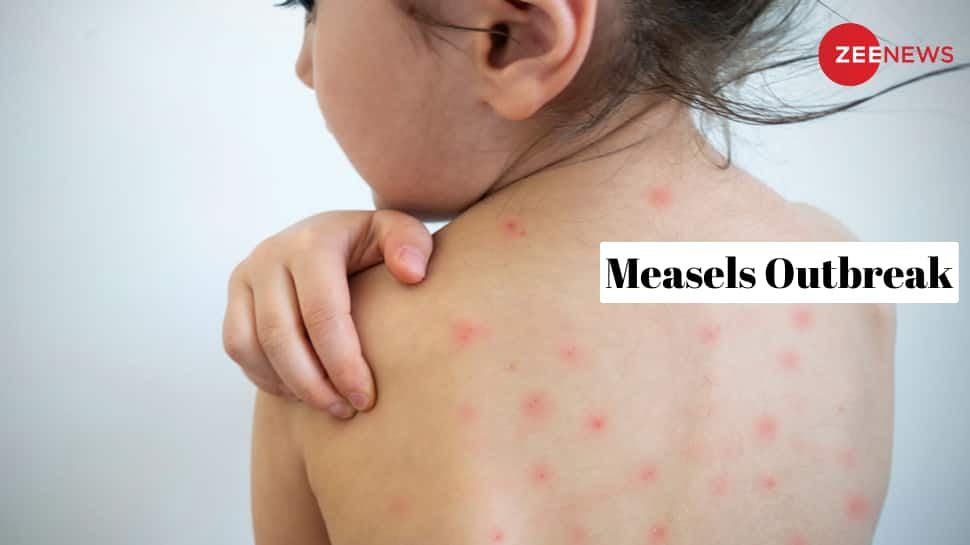[ad_1]
Measles, a highly contagious viral infection, is a significant threat, especially among unvaccinated individuals. It can range from mild to severe complications and even death in some cases. Understanding its transmission, symptoms, treatment and prevention is crucial to combat this disease. Several countries, including India, have witnessed a significant rise in measles cases in recent months, with multiple new cases being reported every day.
According to data from the Centers for Disease Control and Prevention (CDC), about 136,000 people, mostly children, will die from measles in 2022.
Based on provisional data submitted to the World Health Organization (WHO) in early February 2024, India ranks fourth among countries facing measles outbreaks. 12,301 cases were reported in India between July and December 2023. During the same period, Yemen recorded the highest number of cases at 18,464, followed by Azerbaijan at 13,721 and Kazakhstan at 13,195.
Dr Sonia Mittal, Director, Paediatrics, Max Super Specialty Hospital, Shalimar Bagh shares the symptoms, prevention tips and treatment of measles. Here’s what you need to know:
Symptoms of measles
Measles usually starts with a respiratory infection before spreading throughout the body. The virus is highly contagious and is primarily spread through the breath, cough or sneeze of an infected person. The contagious nature of the disease is enhanced by the fact that patients remain contagious for an extended period of time, even up to 4 to 5 days after the rash appears.
Measles symptoms vary, but fever is a common initial symptom. Fever can be high, often reaching 104 degrees F and lasting 3 to 5 days. Other symptoms include cough, runny nose, red eyes, poor appetite, weakness and lethargy. The rash characteristic of measles usually appears 3 to 5 days after the onset of fever. The rash is red and usually starts on the face or neck before spreading downward.
Preventive measures to follow for measles
Prevention is the key to dealing with measles. Immunization has played an important role in reducing the incidence of measles worldwide. In India, about 348 million children were vaccinated in a vaccination campaign from 2017 to March 2023, resulting in a 62 percent reduction in measles infection rates. Immunization schedules in India generally include doses at 9 months, 15 months and 4 to 6 years. Adherence to this immunization schedule is essential to protect all children.
In addition to vaccination, isolation of infected individuals is crucial.
– Parents should be vigilant and keep children home from school if they show any signs of fever or illness.
– Regular hand washing and avoiding contact with infected people can help prevent the spread of measles.
Treatment of measles
There is no specific antiviral treatment for measles, so treatment is mainly symptomatic. Rest, plenty of fluids and a healthy diet are essential to prevent dehydration and maintain energy levels. For high fever, paracetamol may be given, and in some cases, ibuprofen may be added. However, aspirin should be avoided, especially in cases where complications such as pneumonia, eye or ear infections, or encephalitis occur.
[ad_2]

